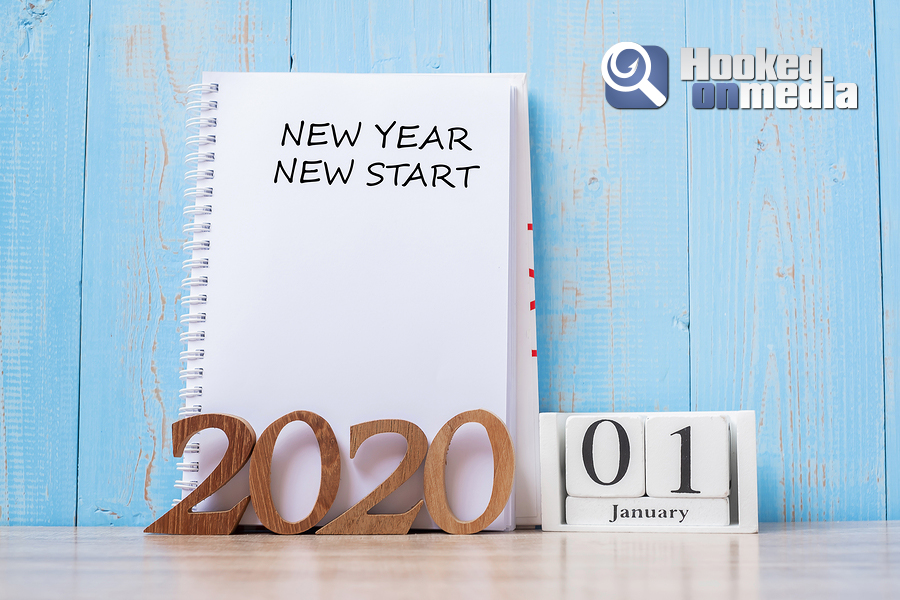FEATURED
With the beginning of a new year, you may be thinking about whether to tweak your marketing budget or reallocate some of it to ensure you get the best return on your investment. As a small business owner, the marketing channels you choose to focus on can make a big difference to your annual income. Here are our top tips for maximising your marketing potential.
Tourism is bigger than ever in Cornwall
Staycations are increasing in popularity in the UK and Cornwall is expecting a huge influx of visitors over the next three years as rising costs of overseas travel and the falling value of the pound prompts more people to holiday at home. If you own a B&B, campsite, hotel, watersports/activity centre, or family-friendly attraction in Cornwall, now is the time to increase your digital marketing budget as people start researching options for this year’s Easter and summer holiday breaks. When you take into account the fact that 82% of all travel bookings in 2018 were made online (via a mobile app or website) without any human interaction, you start to appreciate how important having a prominent online presence is for your business.
Digital marketing offers better ROI than traditional marketing strategies
Business experts recommend allocating around 7-8% of gross annual revenue on marketing, with the digital part of the budget taking up about half of this. The vast majority of organisations (as many as 95%) have increased their digital marketing budget in recent years, and this trend is expected to grow in 2020. However, there are numerous different digital marketing channels, and where you choose to focus your budget will depend on what you are hoping to achieve.
SEO – growing your business organically
If you want your website to appear on relevant Google searches, investing in ongoing SEO (search engine optimisation) is a valuable long-term strategy. Given that 75% of users never scroll past the first page of search engines, your business is losing valuable potential custom if your website doesn’t appear near the top of the list when people type in relevant keywords. And getting people to your website is just the first step in the process – if you haven’t updated it in a while, your site may be causing user frustration due to slow loading times or outdated content. With high levels of competition for most industries (especially travel and tourism), people will quickly click out of a badly designed website in favour of a more user-friendly option. Double check that your site is:
- Mobile friendly
- Fast loading
- GDPR compliant
- SEO friendly
- Regularly updated with new content
- User friendly (for example, by offering features such as live chat)
Try not to be impatient when you invest in SEO – it takes a few months for the results to really show. You can read more of our SEO tips for small businesses on our recent blog post.
PPC – targeting relevant customers
To see an immediate return on investment from your digital marketing budget, paid ads are a good place to focus. PPC (pay per click) advertising is based on keywords and enables you to create highly targeted campaigns that appear to the people who are most likely to be interested in your product or service. One of the most common types of advert is the paid search ad, which appears onscreen when someone performs a specific search (for example, if you Google ‘dog-friendly accommodation in Cornwall’ you will see adverts from companies that have successfully bid on that key phrase). As the name implies, businesses running ads are only charged when a user clicks on their advert. PPC advertising offers small businesses a flexible way to target relevant customers within a given budget and campaigns can be easily tweaked to ensure they are running as efficiently as possible.
Social media marketing – increasing brand awareness
Having a visible social media presence on platforms such as Facebook, Instagram, Twitter, Pinterest, and LinkedIn is a great way to raise brand awareness, create a positive brand association, and directly engage with your customers. Including both paid social media advertising (which works in a similar way to PPC marketing by creating ads that target by location and demographic) and organic marketing strategies (for example viral content and direct audience engagement), social media marketing is a growing digital marketing strategy that can differentiate a business from its competitors. The product or service you provide may influence your preferred social media channels – for example, LinkedIn is better for B2B marketing, while Pinterest’s image-centred platform is perfect for retail, fashion, and travel.
If you are interested in finding out how these digital marketing strategies can help your business grow in 2020 and which options are most relevant for you, contact HookedOnMedia to schedule a free consultation call.









